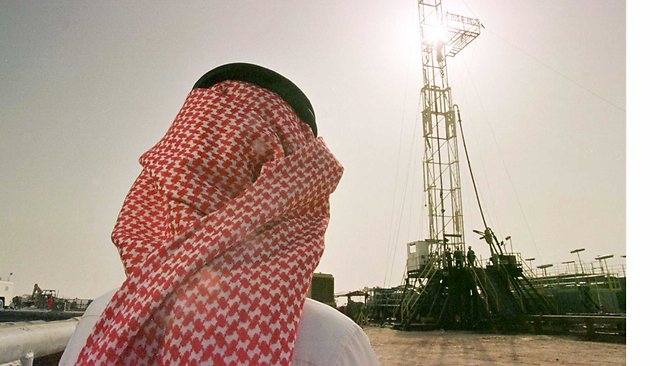Share of the Gulf Cooperation Council (GCC) countries to the world oil reserves is predicted to rise from the current 45 percent to 70 percent during the first decades of the current century, according to the latest report by the Kuwait-based Diplomatic Center for Strategic Studies (DCSS).
According to the report, the GCC countries captured 25 percent of total world oil crude exports and retain 17 percent of world proven gas reserves. Based on earlier data filed by Crescent Petroleum, the Gulf region, comprised of the six countries of the GCC plus Iran and Iraq, holds 56 percent and 40 percent of the world's conventional oil and gas proven reserves.
In 2010, the Gulf Region produced over 25.2 million barrels of oil per day, and 44.6 billion cubic feet of natural gas per day, accounting for over 30 percent of the world's oil production, 15 percent of gas production, and 32 percent of liquefied natural gas (LNG) exports, according to Crescent Petroleum data.
Country-wise, Saudi Arabia retains 38.7 percent of world oil reserves whereas shares of Kuwait, the United Arab Emirates (UAE) and Qatar stand at 14.8 percent, 14.3 percent and 3.7 percent respectively. With regards to gas reserves, Qatar ranks the third globally at 46.3 percent followed by Saudi Arabia, the UAE, Kuwait, and Oman at 14.5 percent, 11.1 percent, 3.3 percent, and 1.7 percent respectively.
As the biggest oil producer in the world and with a proven reserve of 264 billion barrels, Saudi Arabia could continue oil supplies for the next 80 years at the current production levels, the report said. Saudi Aramco has carried out a mega investment program at a cost exceeding $ 100 billion and, consequently, increased production to 12.5 million barrels a day and plans to bring the production to 15 million barrels a day by 2015, according to the report.
Proven oil reserves in the GCC region are poised to increase due to advanced technologies being used in oil exploration processes. Additionally, engineering and geological studies have shown that new oil discoveries will possibly be announced in the GCC region, the report said.
Industrial and emerging countries (China, India and Brazil) are building bilateral relations with the GCC countries where oil remains the cornerstone of such relations, according to the report.
Oil of the Arabian Gulf is considered the most important source to meet world requirements currently or in the future and, thus, will play strategic role in the path of world economy, the report said.
According to International Energy Outlook projections, world energy consumption is projected to increase by over 50 percent by 2030 from 2008 figures. Fossil fuels (oil, gas and coal) will reportedly continue to supply much of the energy used worldwide.
Arab News
8 July
























































